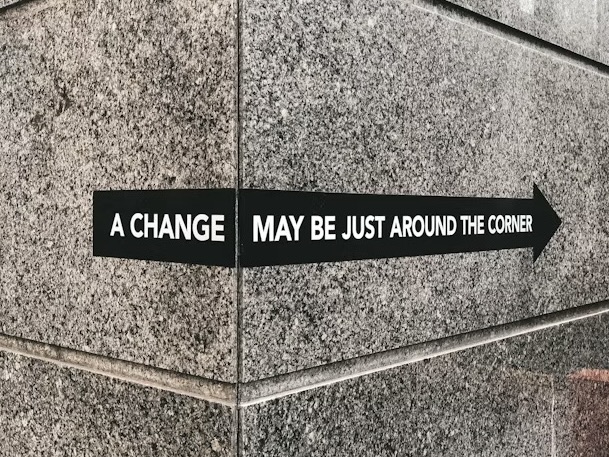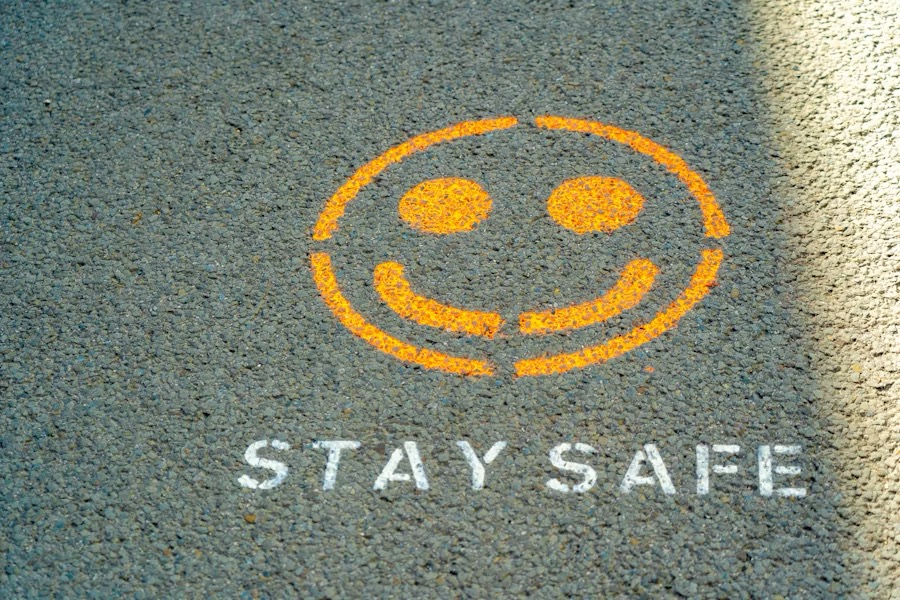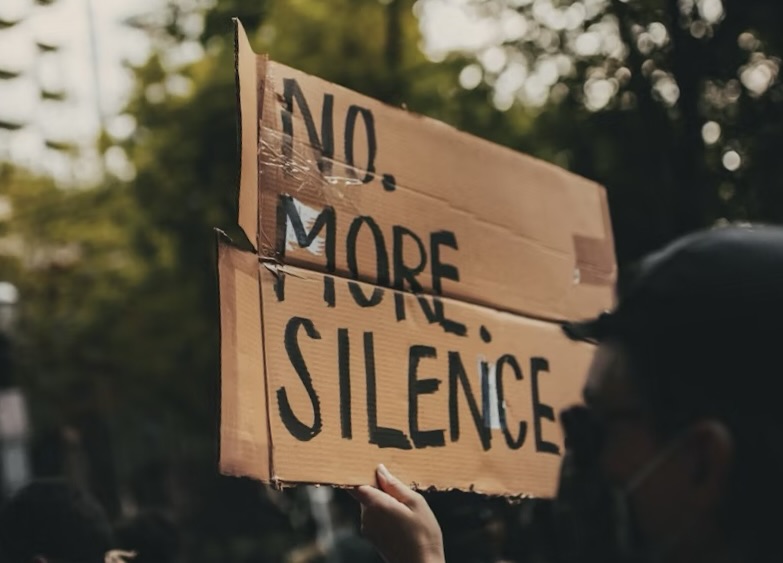For many, the turn of the calendar marks new beginnings, and the Greater Waco area, in agreement, has stepped into another year of development. Alongside the construction and traffic of infrastructure improvements, budding business adventures are opening their doors to new possibilities in Waco.
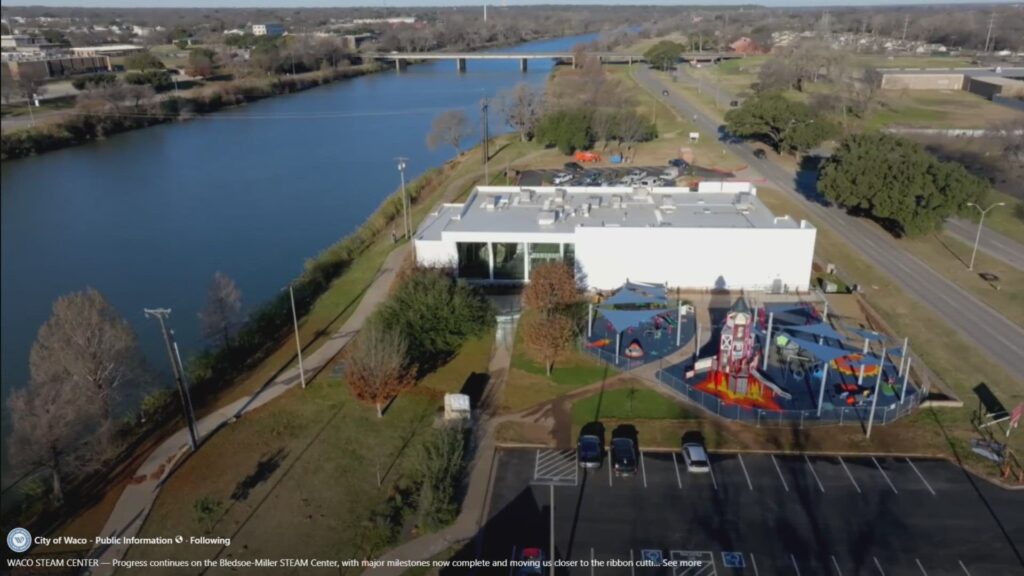
Recently, the Bledsoe-Miller STEAM Center celebrated its launch directly on the banks of the Brazos. The Bledsoe-Miller STEAM Center provides a thriving environment for science, technology, engineering, art, and mathematics, where Wacoans of any age can learn, play, and work in a space dedicated to their creative and educational advancements. With teaching kitchens, robotic laboratories, recording studios, and standard playgrounds, there is no dream too big to create at the Bledsoe-Miller STEAM Center.
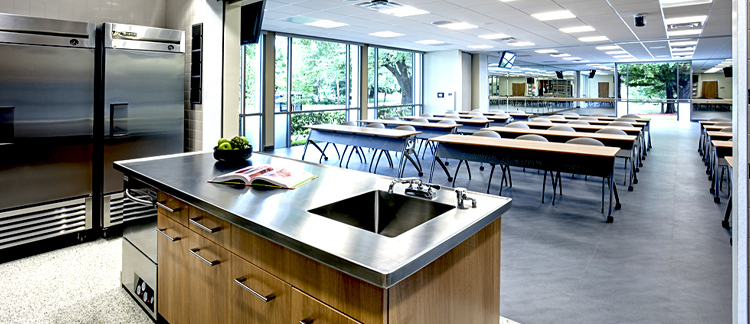
Dreaming big has never been a bad thing, and as we approach Black History Month, we take a necessary moment to celebrate one of the most influential dreamers in American History, Reverend Dr. Martin Luther King Jr., who is nationally honored on the third Monday of January each year. Here in Waco, the Community Race Relations Coalition annually hosts a Wreath Laying Ceremony to commemorate the work of Dr. King and all other Civil Rights leaders. While honoring the contributions and legacies of Rev. Dr. King, this event includes various activities aimed at reflecting on Dr. King’s vision of equality, justice, and peace. Community leaders, activists, and speakers often share their thoughts on Dr. King’s impact and the ongoing struggle for civil rights, while encouraging participants to engage in service projects that embody Dr. King’s belief in serving others.
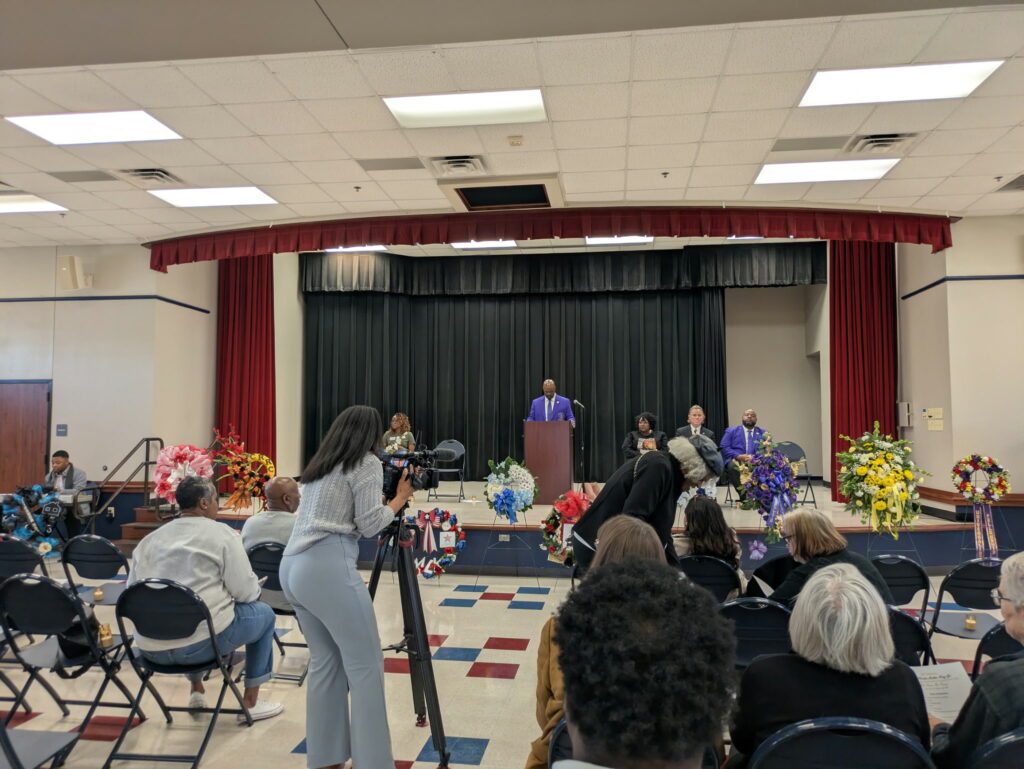
This week is OCD Awareness Week.
OCD Awareness Week is a worldwide event that serves to dispel myths about obsessive compulsive disorder, break the stigma around mental illness, provide education about the disorder, and share how to support those affected. There are over 200 million people worldwide living with OCD, and public misconception can prevent them from accessing timely and effective treatment needed to advance from suffering to thriving. This week, whether you share facts, tell your own story, or otherwise support OCD Awareness Week, you are making a powerful difference.

I was officially diagnosed with OCD at 21, meaning I lived a long time not understanding what my brain was doing to itself. Obsessive Compulsive Disorder is also called the doubting disorder. It not only makes you doubt yourself and all aspects of your life, but, most of the thoughts that come with OCD are entirely illogical, which makes you doubt others, including those you love and trust most, and your basic understanding of reality.
Obsessions are unwanted, intrusive thoughts, images, or urges that trigger intensely distressing feelings. Compulsions are behaviors an individual engages in to attempt to get rid of the obsessions and/or decrease distress. Together, they create harmful cycles of thinking and patterns of behavior. There is a public misconception that OCD is just a minor personality quirk or preference and that everyone is “a little bit OCD.” In reality, OCD is a serious and often debilitating mental health disorder that affects people of all ages and walks of life.
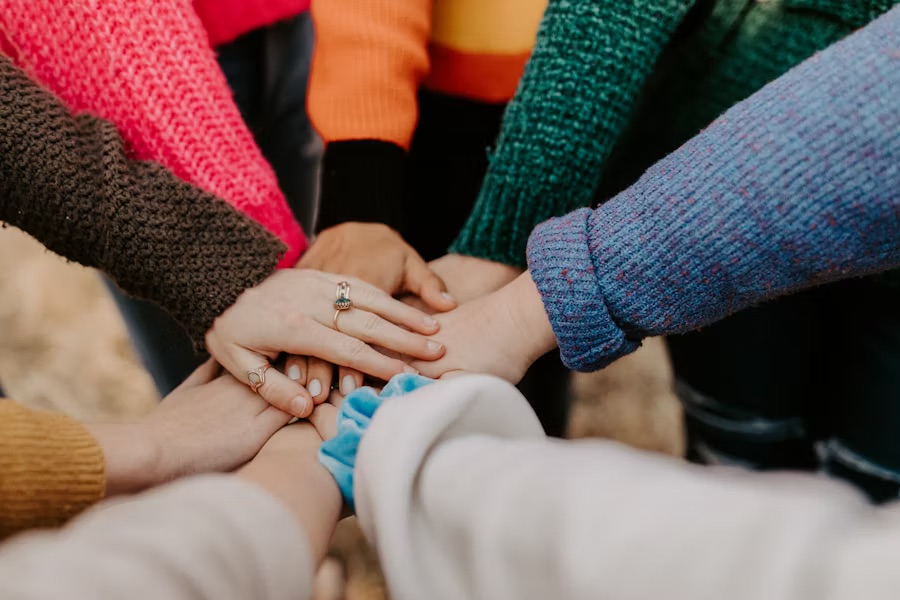
One of the unintended consequences of mental health education and advocacy amidst a time of social media is the watering down of clinical terminology. Many people can experience obsessive thoughts and/or compulsive behaviors at some point in their lives, but that does not mean that we “all have some OCD.” In order for a diagnosis of OCD to be made, this cycle of obsessions and compulsions must be so extreme that it consumes a lot of time, causes intense distress, or gets in the way of important activities that the person values.
Again, not all behaviors associated with OCD are indicative of a mental disorder, and a comprehensive evaluation from a qualified mental health professional is highly encouraged before self diagnosing. Obviously, I passed my tests with flying colors; no studying needed. I was in talk therapy, working out my thought processes with a mental health professional when she simply suggested the idea. The recognition and affirmation shocked my system. I was connected with a psychiatrist who gave me a lot more information on the specific diagnosis, connecting me with OCD specific resources. Going to therapy with OCD has been described as being in a boxing ring with an imaginary opponent, and I can attest to that. A lot of it is straight up exposure therapy or forcing yourself out of thoughts and behaviors that have been crafted for a sense of safety.
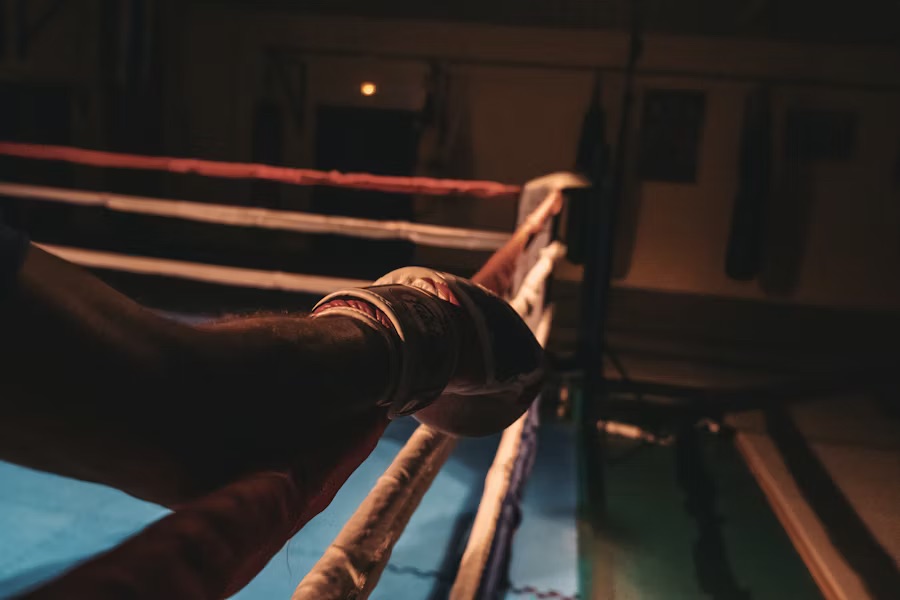
This week, I challenge you to share your story, listen to the stories of those living with OCD, share findings on the reality of it, and challenge myths and misinformation you see regarding this diagnosis.
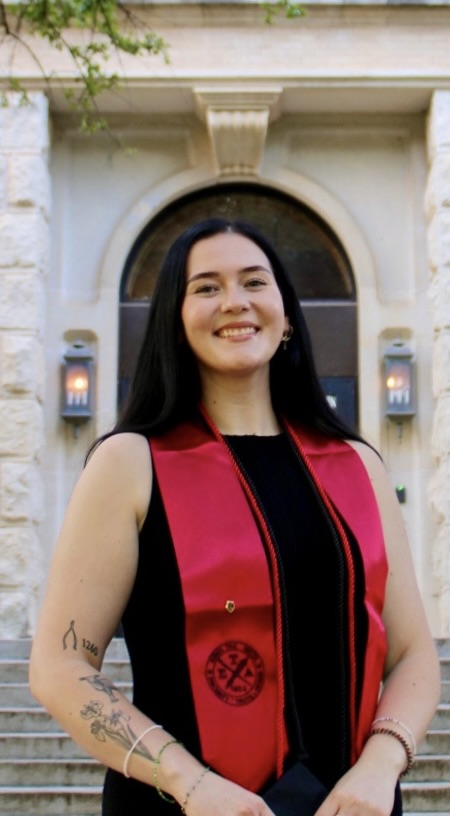
Elizabeth Riley hails from Tennessee and is a graduate of English Literature and Professional Writing & Rhetoric from Baylor University. With passions in archival preservation, communal connection, and women in sports, she writes because it matters, with hopes of bridging villages and fostering revelry amongst them.
The Month of October is Domestic Violence Awareness Month, where communities are going the extra mile to raise awareness and take a stand against domestic violence. Advocates say that awareness is the first step towards prevention and making lasting change, and here in Waco, the Family Abuse Center is advocating for the education of our community on the cycles of violence. Early intervention, prevention education, domestic violence education, and community awareness can interrupt the intergenerational cycle of violence and reduce the social acceptance of domestic violence.

The Family Abuse Center offers a free, safe, and confidential place for adults and children to begin to experience life without violence. Their professional staff listens, advocates, and provides support to all those seeking services. They offer counseling, transportation, job and life skills education, and more.
Each October, during Domestic Violence Awareness Month, the Family Abuse Center recognizes the victims who have died due to domestic violence during the previous year. This year, the Family Abuse Center will be gathering on October 17th at the Waco Suspension Bridge in memory of the Texas women and men killed by their intimate partners. Domestic violence violates an individual’s privacy, dignity, and security due to the systematic use of control and abuse. This day provides an excellent opportunity for citizens to learn more about domestic violence issues and show support for the organizations and individuals who are providing advocacy services to domestic violence victims.
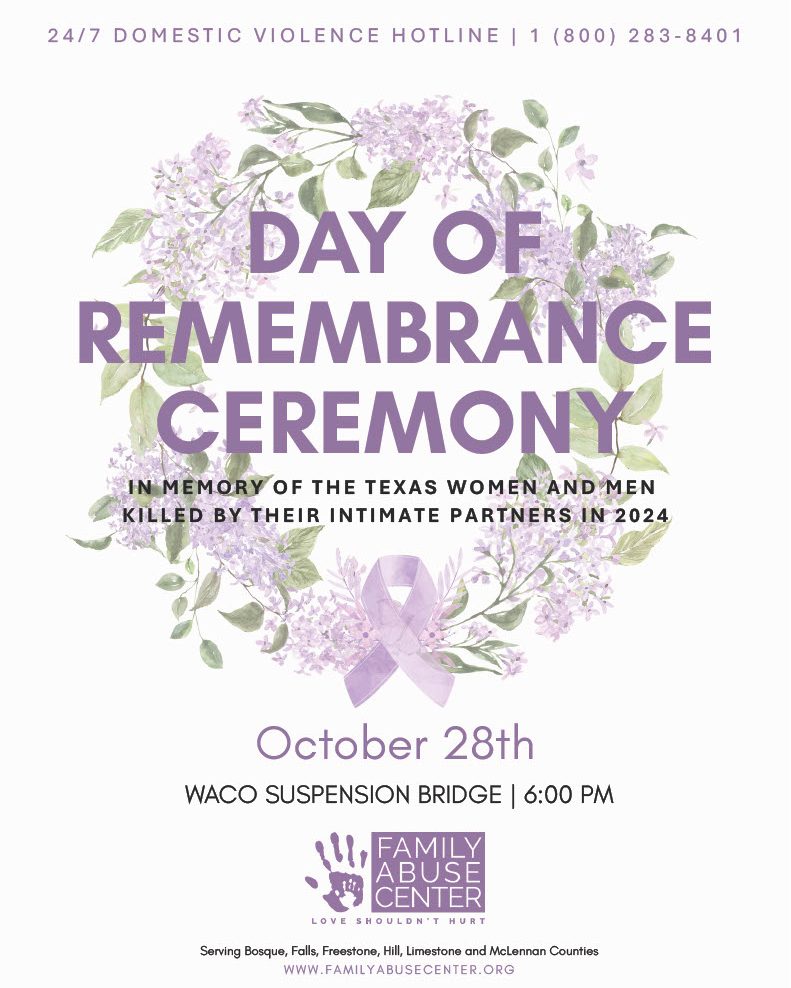
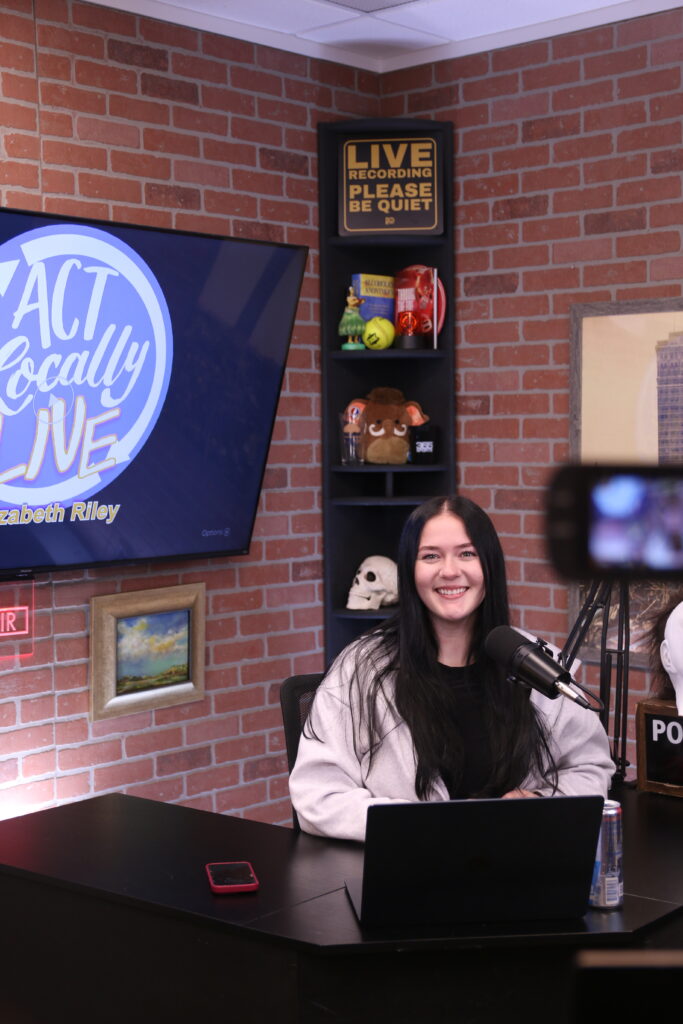
Elizabeth Riley hails from Tennessee and is a graduate of English Literature and Professional Writing & Rhetoric from Baylor University. With passions in archival preservation, communal connection, and women in sports, she writes because it matters, with hopes of bridging villages and fostering revelry amongst them.
If you or someone you know is struggling or in crisis, help is available. Call or text 988 or chat 988lifeline.org to reach the 988 Suicide & Crisis Lifeline.

September is upon us, and our duty this Suicide Awareness Month is to start conversations regarding mental health, spread hope to those in need, and spark meaningful action around one of the most urgent crises of our time. World Suicide Prevention Day is Wednesday, September 10th, but all month long, mental health advocates, prevention organizations, survivors, and allied community members are uniting to promote suicide prevention.
Suicide affects millions of people every year, yet too many struggle in silence. It starts with one conversation: ask someone how they’re doing and be ready to truly listen. No one has to face their battles alone. Whether you’re facing challenges, hoping to support a friend or loved one, or looking to help, your voice matters.

Here in Texas, there are three branches of the American Foundation for Suicide Prevention. AFSP of Central Texas is hosting an Out of the Darkness fundraiser walk in Waco on September 27, 2025. With over 350 participants already joined, this walk at Brazos Park East is the perfect way to participate in the community in a way that matters.
Help exists, and healing is possible. Inform yourself of warning signs for suicide, encourage open conversations about mental health, and connect people to proven treatments and resources.


Elizabeth Riley hails from Tennessee and is a graduate of English Literature and Professional Writing & Rhetoric from Baylor University. With passions in archival preservation, communal connection, and women in sports, she writes because it matters, with hopes of bridging villages and fostering revelry amongst them.
A common misconception about Waco is that there’s nothing to do here.
If that is coming from a transplant, by means of work, school, or life, they are just wrong. If that is coming from a native or naturalized Wacoan–what I call someone who has been in the area a while–it could seem that way, especially if you’ve gotten familiar with what is already here and established a presence in the community.
However, Waco has been growing beyond proportions in recent years, which all living here can agree on due to the amount of traffic and the number of orange cones.
With the growth of our city and surrounding areas, the blossoming communities, and the booming industries, there are tons of new (or soon-to-be) establishments in Waco for natives, transplants, and visitors to check out.
Digi Golf Club
1412 N Valley Mills Dr, Suite 108, Waco, TX 76710
This indoor golf simulator is the first of its kind in Waco. Revolutionizing golf in Central Texas, Digi Golf Club allows players to enjoy a full 18 holes from iconic greens across the world. Bucket list destinations are brought right to Waco. Bring your clubs, hit some balls, and enjoy the always-perfect weather at Digi Gold Club. Not to mention, it is open 24/7! Bring your friends and stop by Digi Golf, located right off Valley Mills, at any time.
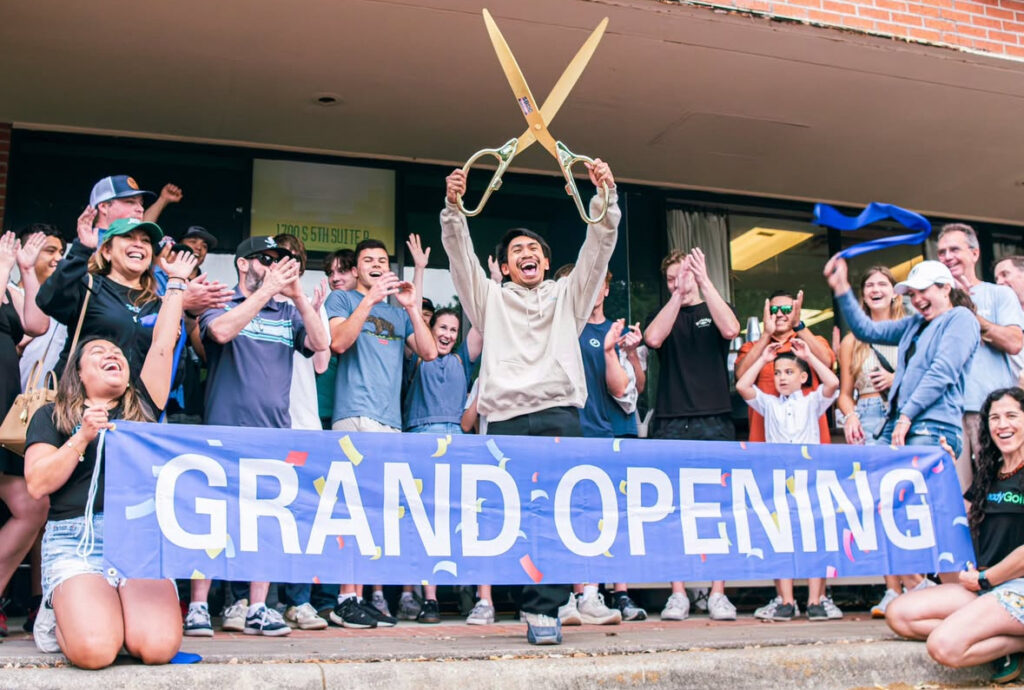
ReadyGolf
1700 S 5th St, Suite B, Waco, TX 76706
What started as a class project at Baylor University has turned into an accessible, fun, and future-focused business that is centered around a passion for golf. Whether it’s your first time holding a club or you’re wanting to perfect your swing, ReadyGolf is bringing weatherproof, pressure-free play to our city. Need a break from the simulator? Sit back in their comfortable lounge chairs, where you can catch the Baylor game, stream your favorite show, or just kick it with friends.
Hammer & Stain–New Location
1225 Richland Dr, Suite 3, Waco, TX 76710
This DIY workshop is a wood and paint studio where people of all skill levels can make custom home decorations. All tools, materials, and instructors are provided, so bring your creativity and get painting! A new location has been opened on Richland Drive. Hammer & Stain is the perfect space for craft parties and family bonding.

Dog Haus Biergarten–Opening July 31, 2025
215 S University Parks Dr, Suite 102, Waco, TX 76706
Signature beef dogs, handcrafted sausages, and grilled burgers all served on toasted King’s Hawaiian rolls. With creative culinary combinations to top each item on the menu, there is plenty to explore. From sliders to bad-ass breakfast burritos, Dog Haus has garnered national attention for their wide array of quality eats.
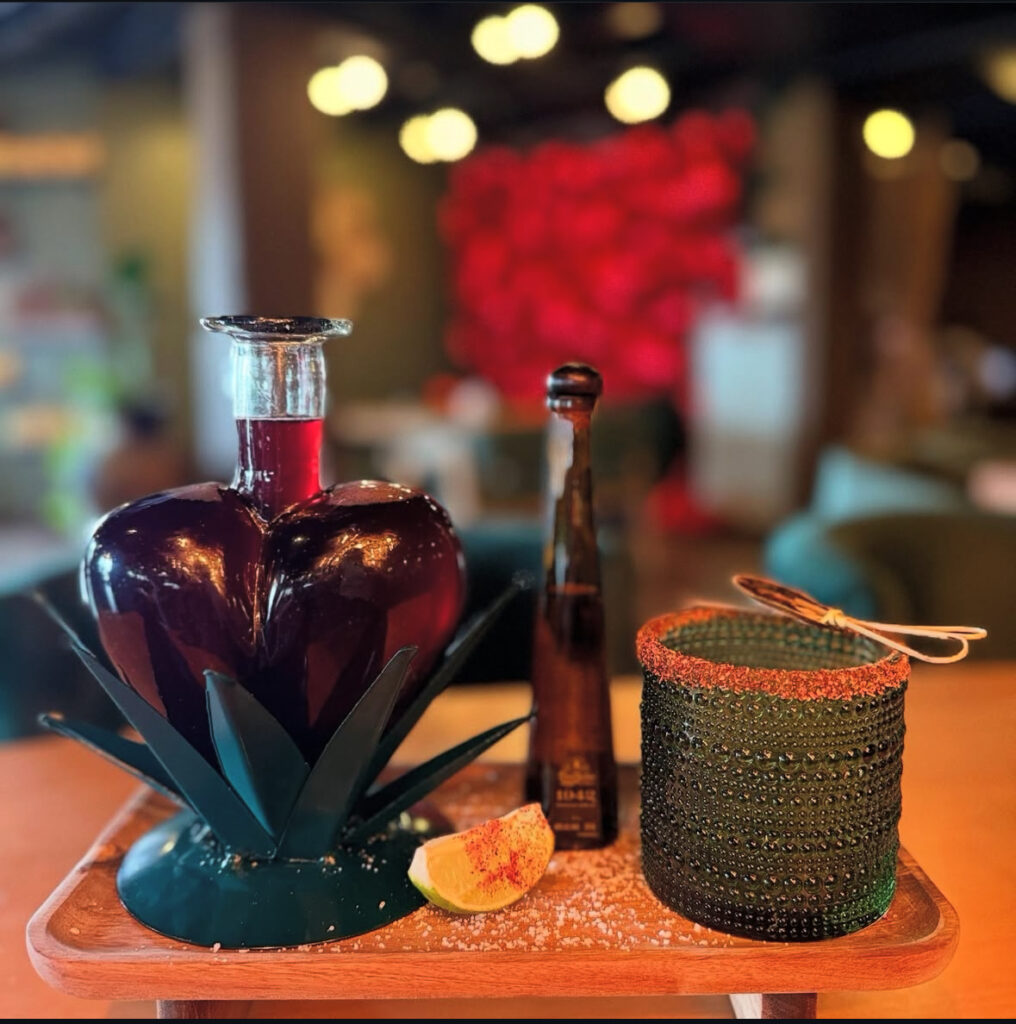
Sagrado Cocina and Bar
215 S University Parks Dr, Suite 107, Waco, TX 76701
With traditional Mexican flavors and modern vibes, Sagrado Cocina and Bar is the dining destination of your dreams. Hot salsas, craft cocktails, and melt-in-your-mouth meals will have you coming back to this bold environment again. The picturesque interior is highly styled, and the culinary concoctions match the energy. Having just opened this spring, Sagrado is still climbing in notoriety around Waco. Dine with them to find out for yourself!
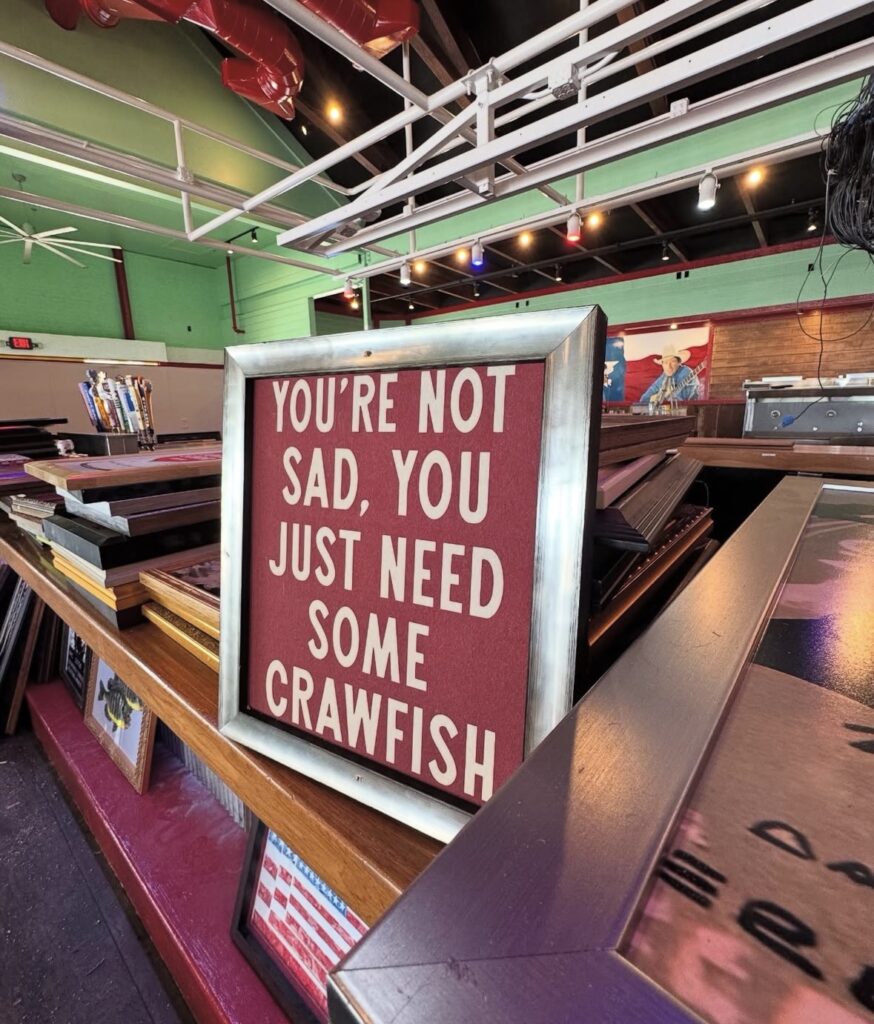
Tia Juanita’s Fish Camp–Opening Late July
4671 S Jack Kultgen Expressway, Waco, TX 76705
This Southeast Texas restaurant chain provides a taste of Mexican food spiced with Cajun cuisine. Tia Juanita’s has found a match made in heaven. Try some Grilled Boudin Quesadillas or Blackened Gator Tacos. Perhaps you’d prefer the oyster bar. Anyway, you will be going home stuffed and satisfied! Tia Juanita’s Fish Camp will be coming to Waco very soon, so keep your eye out for the ‘Mexi-Cajun’ creations they are bringing to town.
Tru Jamaica–New Brick and Mortar
937 Taylor St, Waco, TX 76704
After losing their building in East Waco to a fire, Tru Jamaica is reopening its doors. This colorful, easygoing Jamaican eatery serves up delicious oxtail, jerk chicken, and a multitude of curry entrees. Try the flavorful, flaky patties with beef, chicken, or vegetables. With unique Jamaican drinks available as well, you do not want to miss this cuisine.
This is the first installment of “New Things for Old Wacoans To Do.” If you know of a restaurant/business opening up, or one that recently has, send the information to [email protected].
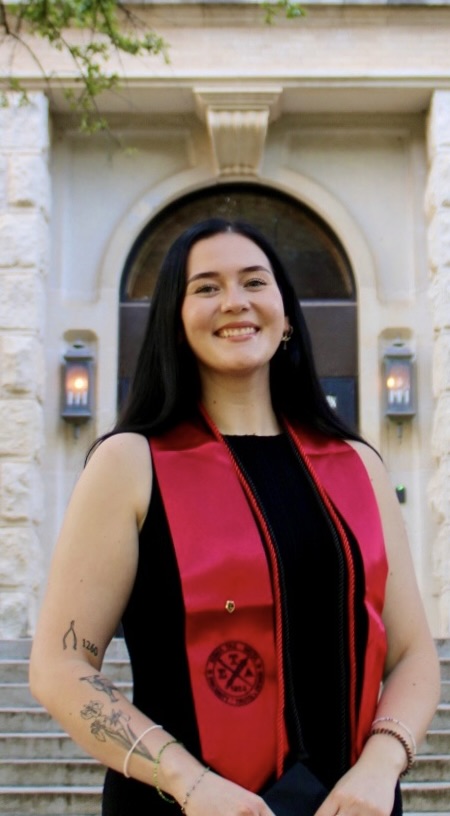
Elizabeth Riley hails from Tennessee and is a graduate of English Literature and Professional Writing & Rhetoric from Baylor University. With passions in archival preservation, communal connection, and women in sports, she writes because it matters, with hopes of bridging villages and fostering revelry amongst them.
By Ferrell Foster
Five China Spring and Waco residents left Sunday for a week of helping our neighbors to the north in Dallas. People are still unable to return to their flooded homes in Dallas, and the TBM: Texans on Mission volunteers are working to remove mud from those homes and clean them throughout the week.
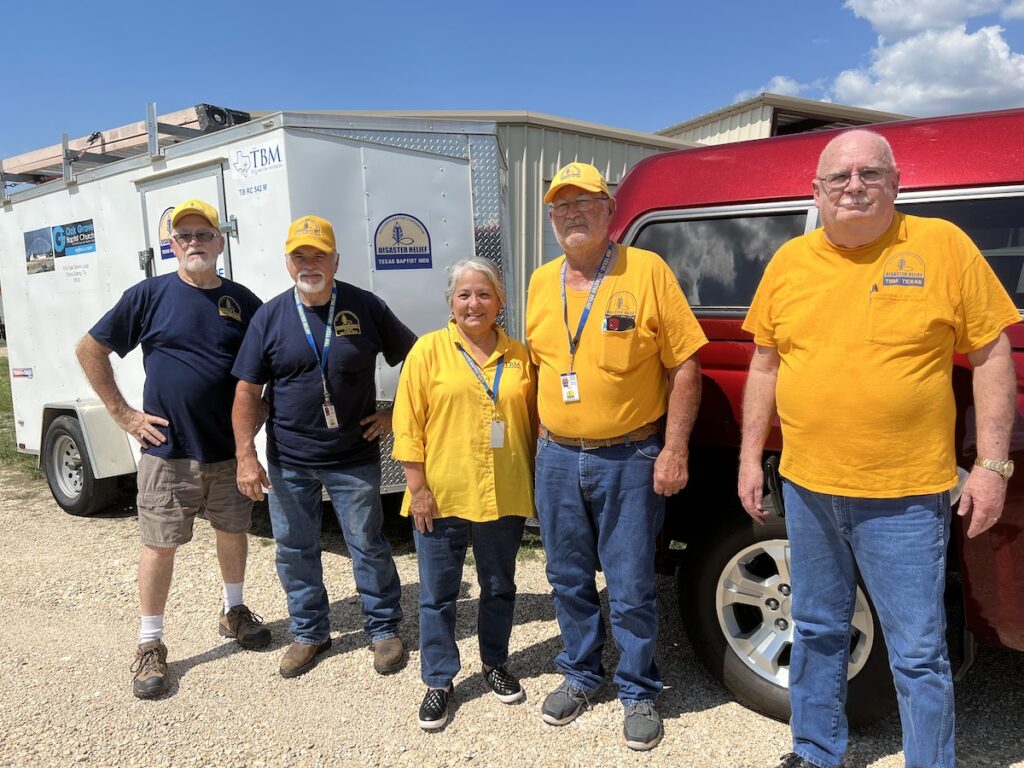
Sam Yates, Butch Abernathy, Renee Parker, Al Smith, and Dave Roby are among 25 TBM volunteers associated with Waco Regional Baptist Association, which is led by Director Tim Randolph, who saw the group off Sunday.
“We have been doing disaster relief for five years now,” said Yates, who leads the local volunteers. “Our unit has a Flood and Fire Recovery unit, a Chainsaw unit, a Box unit, and two equipment units that include a skid steer loader and a 50ft manlift. We started out hauling our tools and volunteers in a Suburban for Hurricane Harvey. We were blessed to be able to get all we have now.”
In Dallas, the group will “clean out flooded homes removing flooring, drywall and insulation. Then we powerwash and treat the interior for black mold,” Yates said.
I’m sure the group will appreciate our thoughts and prayers this week.
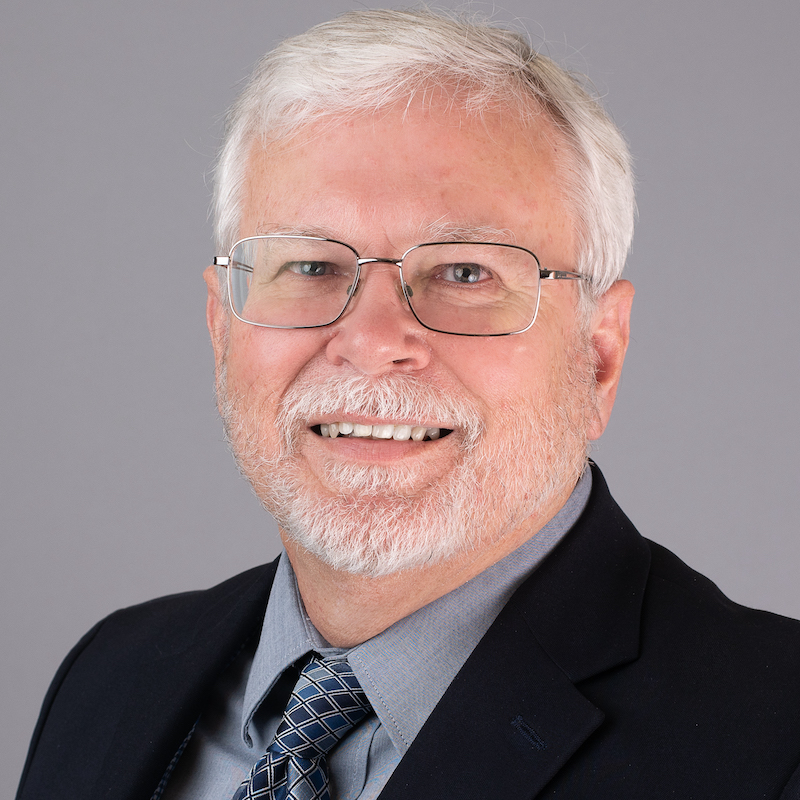
Ferrell Foster is directing communications for Act Locally Waco. He is president of Kortabocker LLC: Communications Built on Caring. Ferrell also does communications work with TBM and Prosper Waco.
February is Heart Health Month and we’re celebrating with an adventure! Show your heart some love by joining Walk with a Doc, a safe, fun, and FREE place to get some steps, learn about health, and meet new friends.
Walk with a Doc was started in 2005 by Dr. David Sabgir, a cardiologist in Columbus, Ohio. Frustrated with his inability to affect behavior change in the clinical setting, Dr. Sabgir invited his patients to go for a walk with him in a local park on a spring Saturday morning. To his surprise, over 100 people showed up, energized and ready to move. Since that first event in 2005, Walk with a Doc has grown as a grassroots effort with a model based on sustainability and simplicity. A doctor gives a brief presentation on a health topic and then leads participants on a walk at their own pace. The Walk focused on building a program that could easily be implemented by interested doctors in other cities around the country. As a result of these efforts, the reach of Walk with a Doc now extends all around the globe with over 500 chapters worldwide, including Walk with a Future Doc chapters led by medical students!
Walking is one of the best things you can do for your health. Many diseases, conditions, and ailments can be prevented or even healed by participating in regular physical activity. Fortunately, even moderate-intensity aerobic activity such as walking can provide these health benefits.
Benefits of Walking
- Physical and mental benefits
- Maintaining or obtaining a healthy weight
- Decreased risk of cardiovascular disease and cancer
- Decreased blood pressure and improved cholesterol
- Prevention and management of type 2 diabetes and arthritis pain
- Lowered risk of depression and improved mood
Our next Waco walk will be on Thursday, February 17, from 5:00 – 6:00 p.m. at the Community Gathering Space, 1610 Providence Drive. All future walks will be held on the 3rd Thursday of every month.
By Deneece Ferrales
For many of us, the new year means time to set our new year’s resolution(s) — a goal or set of goals that are generally designed to help one become happier, healthier, more successful, and/or have increased life enjoyment. According to several studies, health goals are the most common resolutions.

In the United States, exercising more, losing weight, and better mental health are among the top five resolutions every year. These are important, especially in light of the COVID pandemic continuing to limit our contact with others and limiting how and when we can participate in healthy activities such as exercise or even the ability to access healthy foods.
Keeping up a healthy exercise routine and healthy eating are imperative both to our physical and our mental health. Unfortunately, despite our best intentions, many of our resolutions will be abandoned before January ends.
The collective wisdom regarding resolutions has always been that discipline is key and that if we fail at keeping a resolution, it is because of poor self-discipline. However, simply telling ourselves to do it does not lead to success. According to US News & World Reports, we normally set resolutions based on our Christmas excesses (eating, failing to get exercise during the holidays, etc.) without preparing ourselves for the changes we plan to make in our lives.
There is a discomfort that comes with change, even when that change leads to feeling better. We have to readjust our schedules for exercise, amend our shopping habits to seek out healthier foods, or make other intentional changes to our daily routines and habits. This is stressful because the act of change, any change, produces emotional friction.
If we have not determined when and how we plan to exercise or made a plan for any grocery shopping changes needed to be able to purchase healthier foods, then we are doomed to fail when we experience that transient discomfort. It is important to plan for the change and give yourself a step-by-step guide to when and how each change will occur. Even with the best plans, transient discomfort will occur, but it is much easier to follow a well-thought-out plan through the change than to add further stress from indecision.
Here are some tips for keeping those healthy new year’s resolutions:
- Turn your broad health resolutions into specific goals with steps for accomplishing those goals. I like using SMART goals (specific, measurable, attainable, realistic, and timed). SMART helps us think out exactly how and when we plan to make our changes and then gives us time limits for accomplishing our goals. So instead of having a resolution that says, “Get more exercise,” your resolution reads, “Take a mile-long walk 4 times a week for the next three months.”
- Think small. Set your goals for something accomplishable. You may want to run in next year’s marathon, but you have not begun to train yet. Setting a goal that is not reachable or that will require work over a long period of time is likely to lead to disappointing results and goal abandonment. It might be better to start with a smaller goal, like running a mile or running 3 times a week, and as you reach each goal, set another until you are ready to run that marathon.
- Consider your why. Setting goals that lead to better health is always a good idea. The meaning of those goals is different for each person. One person may be diabetic and interested in lowering their A1C, while another person may want to increase stamina to be able to participate in more activities. Whatever your reason, this can be what keeps you motivated on those days when you are not feeling it. If your goals revolve around exercise and/or healthier eating, try to stay away from an appearance-focused why.
- Keep it all in the family! Parents have to consider their children’s needs, which are sometimes unpredictable. Setting a health resolution for the whole family makes reaching your goals a “family affair” and prevents you from having to choose between your family and your own personal growth.
The Robert Wood Johnson Foundation published a report titled, “State of Childhood Obesity: Prioritizing Children’s Health During the Pandemic.” The report states that more than 15% of children (1 in 7) between the ages of 10 and 17 are obese. Childhood obesity leads to a host of health problems in adulthood. For this reason, including the children in developing healthy goals now will give them a foundation for continuing healthy practices.
If setting a family health resolution, call a family meeting so everyone has input. Define what a resolution is so that the entire family understands the importance of setting the goal. Talk about your family’s good health habits and bad ones to determine the best family resolution.
- Write down your goals/resolutions. Writing down your resolutions helps make your goals more intentional. Looking back at the goals can help motivate you and remind you how far you have come toward achieving your goals.
- Share your resolution with others. Telling other people about your goals can help hold you accountable. It can also help you find others who are working on similar goals so that you can achieve them together. Find someone else who wants to exercise and schedule walks or grocery shop together.
- Use technology to your advantage. There are a myriad of apps for your phone that can support you in your quest to meet your goals.
- Look at your goals frequently and review your progress. There are a number of free goal tracking apps that can assist you with this.
- It’s not over just because you veer off course. We all veer off course sometimes. Maybe you had a bad week and weren’t able to walk or you were not able to shop at your regular grocery store and thus had to buy more pre-packaged and less healthy foods. It’s okay. Look back and celebrate the progress you have made and how far you have come then readjust so that you are able to continue moving forward despite the disruption.
Let’s make 2022 a year of healthier living by learning to plan, set, and achieve our health goals. Have a happy and healthy new year!
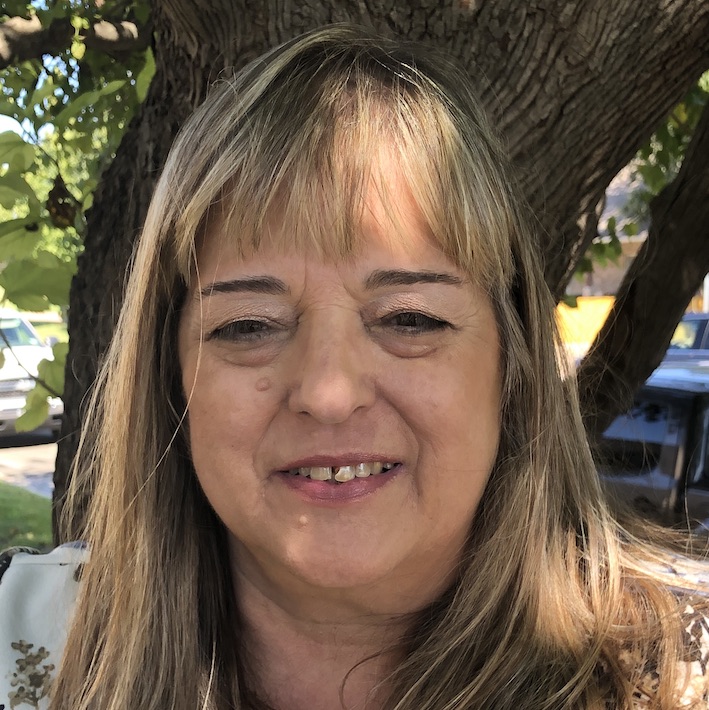
Deneece Ferrales, Ph.D., is director of health initiatives with Prosper Waco.
By Susan Menninger Krause
Did you know that walking is one of the easiest, least expensive, most accessible ways to improve your health?
Walking will help you maintain a healthy weight, lose body fat, improve cardiovascular fitness, strengthen bones and muscles, improve balance and coordination, and increase energy. It also can help prevent or manage conditions such as heart disease, stroke, high blood pressure, cancer, and type 2 diabetes. And walking can also improve your mood, cognition, memory, and sleep.
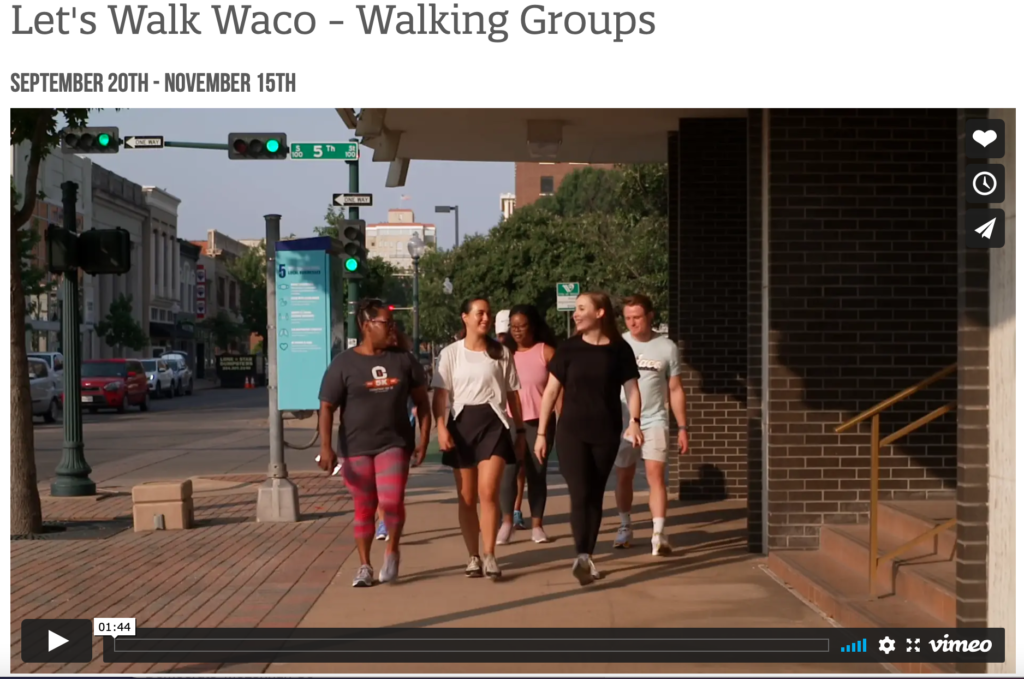
It’s not complicated. There’s no pressure. No elaborate or pricey equipment or memberships are necessary. You control your schedule, your distance, where you go, and who you go with. Just put one foot in front of the other and join “Let’s Walk Waco” this fall.
If you’re looking to start or continue your walking journey, join the “Let’s Walk Waco” community-wide challenge. This walking challenge is sponsored by the Live Well Waco Coalition and the Waco-McLennan County Public Health District. This free eight-week program begins Sept. 20 and runs through Nov. 15. Registration begins Aug. 30.
You can create a team of your friends, neighbors, family, or co-workers or join a team and get the chance to meet and make new connections. Anyone can join, and McLennan County residents who log their miles may win prizes along the way.
For information on how to register, create, or join a team, visit our website. There you will also find information about community center parks and indoor walking opportunities, City parks and trails, frequently asked questions, and other helpful tips and resources. Come join the fun and “Let’s Walk Waco.”
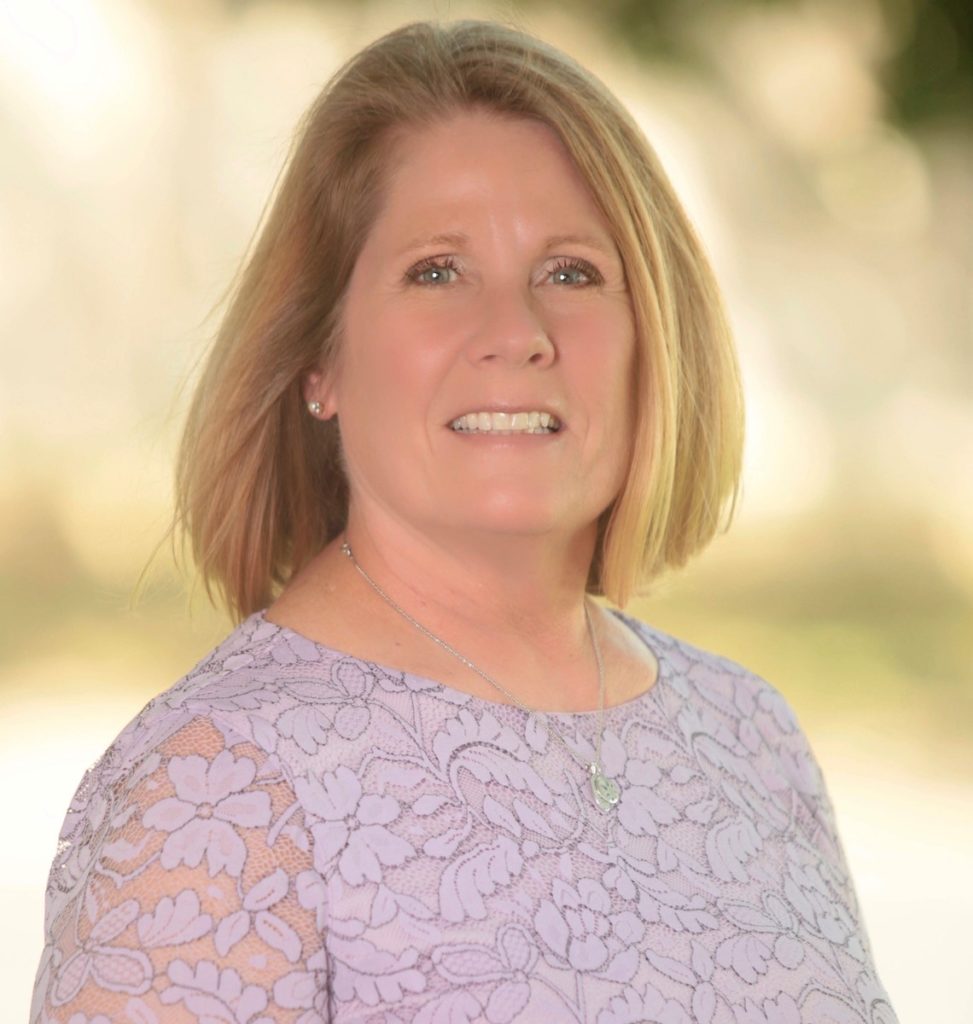
Susan Menninger Krause is manager of parks and rec facilities and programs for the City of Waco Parks and Recreation. Susan formerly was branch executive director at Waco Family YMCA. Before coming to Waco, she worked 16 years at Greater Joliet Area YMCA near Chicago. Susan holds a bachelor’s degree in English from the University of Texas at Dallas and a master’s degree in kinesiology from the University of North Texas. She and her husband, Ken, have two sons, Zachary and Tyler, both are in college.
Act Locally Waco also has an informal group of walkers called Waco Walks. There is more information on our Waco Walks web page.
The Act Locally Waco blog publishes posts with a connection to these aspirations for Waco. If you are interested in writing for the Act Locally Waco Blog, please email Ferrell Foster at [email protected].

